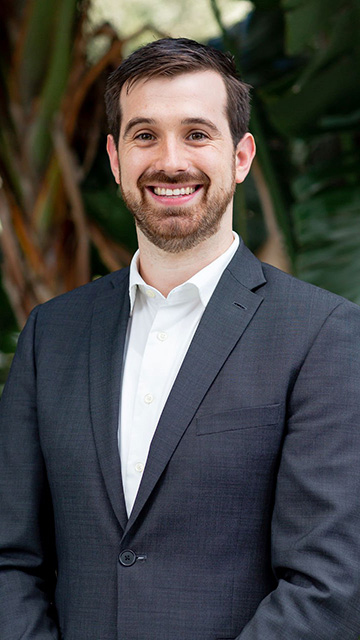Paper leads to research partnership for biology professor Pamela Hanson
Mark Bazett, director of preclinical development at Bold Therapeutics, didn’t have a problem when he learned that Furman Professor of Biology Pamela Hanson intended to use undergraduates to help with research on his company’s anti-cancer drug BOLD-100. Quite the opposite, in fact.
“Actually getting hands-on experience with a clinical product, I think that’s a really cool experience for these students,” Bazett said. “You don’t get that often.”

Bold Therapeutics Director of Preclinical Development Mark Bazett leads development of the anti-cancer drug BOLD-100.
Bold Therapeutics is a biotech company founded in 2018 to develop BOLD-100, which has shown promise for the treatment of gastric, pancreatic and colorectal cancers. Realizing that promise now requires gathering information from laboratory studies to shape clinical trials, which is where Hanson and her student team will come in.
In April, Hanson and collaborator Laura Stultz, a professor of chemistry at Birmingham-Southern College, published a paper in Metallomics sharing their work using Saccharomyces cerevisiae – baker’s yeast – as a model for cancer cells to analyze some of the biological impacts of KP1019.
Like BOLD-100, KP1019 is a member of a new generation of metal antitumor drugs known as ruthenium complexes. After reading Hanson’s paper, Bazett realized her method would be ideal for his company’s pre-clinical studies.
“KP1019 is the precursor molecule to BOLD-100, which is the clinical candidate. Functionally, the actual active molecule is the same,” Bazett said. “Our thought was she might be interested in using the clinical candidate instead of the precursor molecule.”
Hanson was.
“It may sound crazy, but people have won Nobel Prizes for using yeast as a model system for cell division and cancer,” Hanson said. “Yeast divide rapidly. They’ve got metabolism that’s pretty similar to cancer cells … They take in a ton of sugar in order to drive that cell division and metabolism, and cancer cells do the same thing. Yeast are certainly not a substitute for a clinical trial, but as an inexpensive, easy model system for early research, it’s a really powerful tool.”
The relative simplicity of using yeast to run experiments is also how Hanson is able to involve students who are still learning their way around a lab.
“With yeast, you can scale everything down to a really small format so you can screen lots of things quickly. That’s where I think they were interested in bringing me in,” she said. “One of the things I let them know is that my research program is very student-centric. I wanted to make sure they were OK with having students work with the drug, and they were very open to that.”
Hanson is still finalizing the members of her research team, though one will be Jackson Blackman ’23. She’ll begin work in the spring with the students joining in the summer, with an eye on seeing just how similar BOLD-100 really is to KP1019.
“The drug is essentially a salt. If you dissolve table salt in water, the sodium separates from the chloride. This drug works the same way. It has the bioactive part and then this other part that separates from it when it’s in solution,” Hanson said. “Compared to the drug that I published on, the bioactive part of BOLD-100 is the same, but the part that splits off of it is different. And it shouldn’t matter, but you have to do the experiments to find out.”
Furman is one of multiple universities working on BOLD-100, which was invented by the University of Vienna in Austria but is now owned by Bold Therapeutics.
“Our primary strategy to advance the program is to create a group of researchers, primarily academic researchers, that have a diverse skill set who can all contribute to the product in different ways,” Bazett said. “Ultimately, we need to understand the detailed molecular pathway pieces, and I think (Hanson’s) work can be one of the techniques that starts piecing that together.”
Bold Therapeutics is a startup with only 11 employees, and Bazett says he hopes the company can be more than a research opportunity for Furman students.
“We’re open if her students want to chat with us about what work in small biotech is,” he said. “This is a very rewarding career path that students don’t often know about when they’re doing their science undergrad.”